FENTON — When Atlas 46 opens a new factory, it does not erect a tin building on the outskirts of town. It renovates an old building in the heart of downtown.
It’s part of what company director of community relations Jonathan Weyer calls “moral capitalism.” The phrase comes from a book by economics and business writer Steven Pearlstein.
“We’re saying capitalism can be good, and is good, if it’s done right,” Weyer said.
Atlas 46 makes tool belts, tool vests, tool bags, tool pouches and anything else that can used to carry tools. It also makes a line of gear specifically for the needs of firefighters. The products are generally made from nylon or leather, or a combination of the two, and are hand-sewn on sewing machines.
The company takes its name from the Greek god who held up the heavens and the 46th parallel in Montana, where company founder John Carver owns a ranch.
People are also reading…
Part of the company’s moral capitalism mission is to open plants in small towns that need a boost in both energy and jobs. In order to maintain a town’s character and charm, the company refurbishes and repurposes old buildings in its fading business district.
According to Weyer, the company chooses small towns that have been hit by globalization and the loss of manufacturing, in the hopes of helping them to thrive again. Investing in those areas builds a sense of community, he said, and can also train a new workforce to find advancement in Atlas 46 or elsewhere.
“We’re getting more from them than they’re getting from us. Their work ethic is rubbing off on us,” said Paul Witwer, vice president of product development.
The company opened 8 years ago in Fenton on the site of Eagle Industries, a previous company that John Carver owned that sold backpacks, holsters and other nylon gear to the military. Brian Carver, John’s son and Atlas 46’s CEO, said he used to play in the building when he was 5 years old.
That plant in Fenton is more of a traditional style of manufacturing building, with concrete floors and an interior designed to be ignored. But the newer locations in Hillsboro, Illinois, and Vandalia, Illinois, have hardwood floors and exposed brick walls.
“They look like microbreweries,” Brian Carver said.
Each plant employs no more than 70 to 100 people, he said, so they can help improve the towns without dominating them. They are now looking at other similar towns in Illinois and Missouri for expansion.
The Atlas 46 business model also means believing in second chances, and they company often hires people recovering from alcoholism and people who have been incarcerated.
Similarly, officials is investigating the possibility of providing employment for prisoners on a day-release program at the Vandalia Correctional Center or other facilities in the Illinois Department of Corrections, said Weyer.
Company officials are also beginning to discuss training people inside prisons to give them a skill, such as sewing or design, they can use when they are released.

Works in progress sit in a box at Atlas 46’s plant in Hillsboro, Illinois, on Wednesday, July 27, 2022.
The company makes note of the fact that its products are made in America. Many of its 220 employees are immigrants — nine languages are spoken in its plants, Brian Carver said.
Competition comes largely from countries such as China, which can make similar products for less money. Atlas 46 fights back with speed, quality and innovation.
Brian Carver, 41, said the company maintains its speed of production by staying lean and nimble. Little inventory is kept in stock. When a new product is proposed, either by a corporate customer or one of the in-house designers, it can go from an idea to production in a matter of weeks.
The quality is maintained by making, or at least assembling, most items by hand.

Roger Shipman, of Hillsboro, Illinois, adds stitching to a Saratoga tool vest while working at Atlas 46’s plant in Hillsboro, Illinois, on Wednesday, July 27, 2022. Shipman started working for Atlas 46 about 3 years ago and is glad to work close to home, when he previously commuted to St. Louis for work. Photo by Allie Schallert, [email protected]
Sewing is becoming something of a lost art in manufacturing. Brian Carver estimated that 90% of his employees did not know how to sew when they first joined Atlas 46.
The company is one of the few places around that specialize in sewing, so some local fire companies ask them to mend their coats and pants. Though they aren’t in the business of mending, and they don’t even make the clothes that are torn, they make the necessary repairs.
Innovation is also key to their competitive edge; on average, they come out with one new product every two weeks or so. Such speed and innovation have led them to project sales of $14 million to $15 million this year.
One reason for this sustained creativity is the company’s requirement that its designers watch tradesmen at work — sometimes it’s their customers, sometimes just people they ask for help. That way, they learn what workers really require from their equipment.
To that point, a quote from Witwer adorns a whiteboard on the Fenton office wall: “There is no substitute for the direct observation of, and interaction with, the people who will be using the product.”
From such observations come a wealth of ideas. Seeing that most workers simply toss their tools into their bags at the end of the day, the company now makes bags with extra-wide openings — and they are closed with magnets, for easy access.
Many of their bags now also come with a detachable sturdy pad, so the workers have something handy to kneel on.
Innovations such as these usually come from the designers, and the designers all come from the ranks of the workers who hand-sew each product. This ability to rise quickly through the company’s ranks — the possibility of upward mobility — is a powerful motivator, Carver said.

Workers walk in between the aisles of sewers at Atlas 46’s plant in Hillsboro, Illinois, on Wednesday, July 27, 2022. The shelves contain fabric to be used for different products as well as pieces of the finished sections ready to be sewn together. Photo by Allie Schallert, [email protected]
Justin Shultz, who is in charge of purchasing and corporate maintenance, began working at Atlas 46 five years ago as an assembler. Darren Patterson, who has been at the company a little more than two years, started in the shipping department. He now is in charge of the kitting department, a quality-control position that makes certain the production line has everything it needs to make each product.
Carver and the executives take management cues from the Kaizen method, a theory of business that emphasizes constant, incremental improvement.
“How do you improve each and every day?” Carver said.
One way, he said, is to take the famous words of hockey legend Wayne Gretzky to heart: “I skate to where the puck is going to be, not where it has been.”
But another way to improve is more practical. It has to do with connecting with their customers and thinking like the workers who use their products: Atlas 46 employees build their own desks.
Some are better made than others, but the point is that the people who work there get a feeling for the process.
Witwer said, “We build stuff because the people we work with build stuff.”


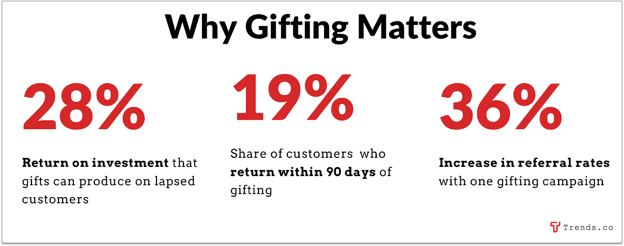
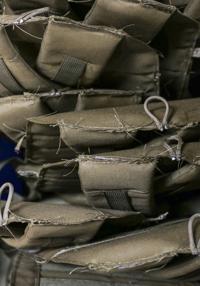
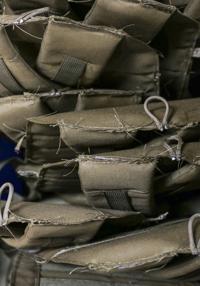
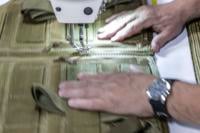
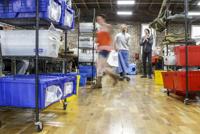


.png)
More Stories
Three pillars of The New Automation Mindset, for an age when anyone can automate anything with AI
BOJ must always brainstorm ideas on ending low rates, says deputy gov
BOJ must always brainstorm ideas on ending low rates, says deputy gov